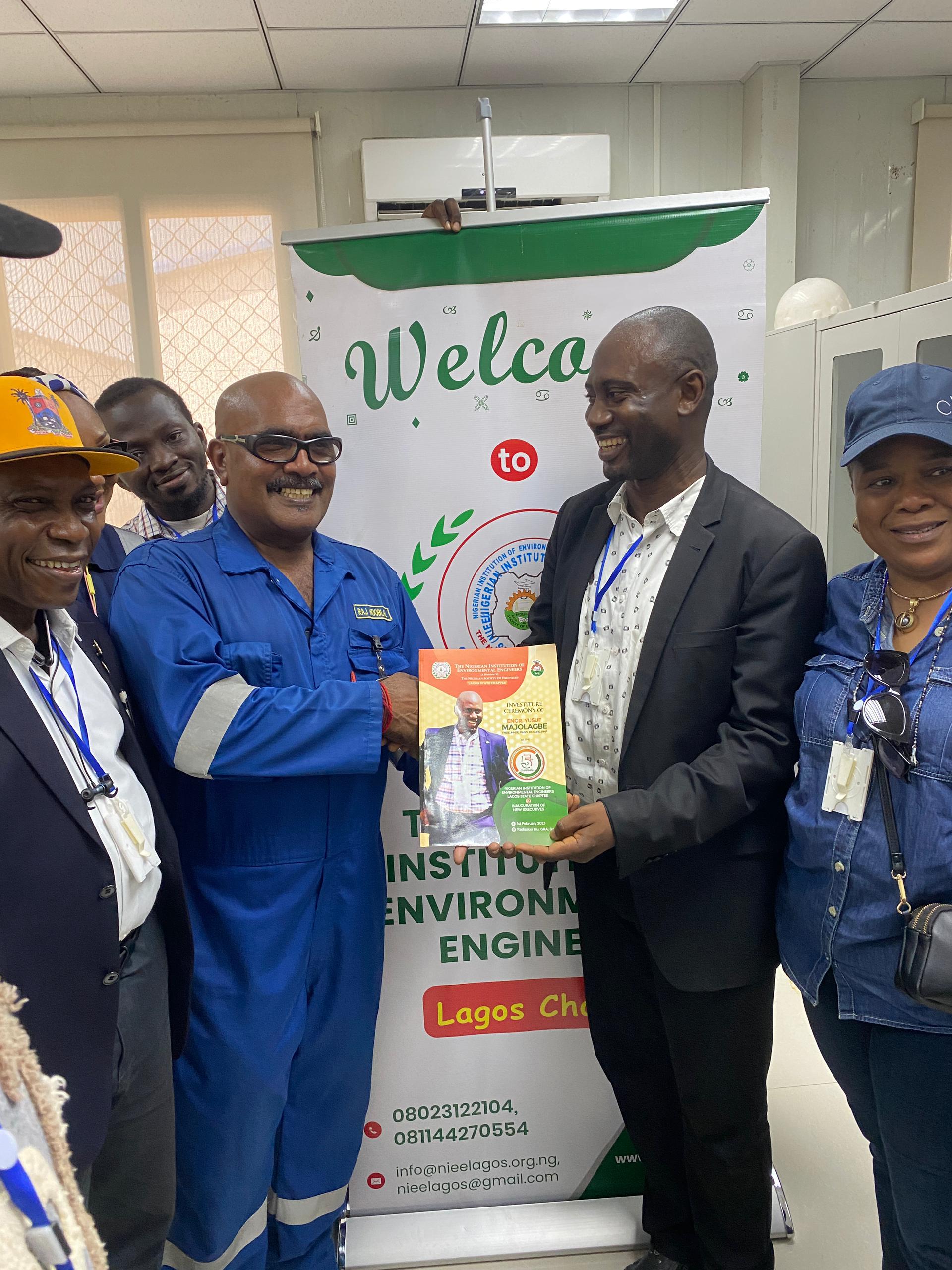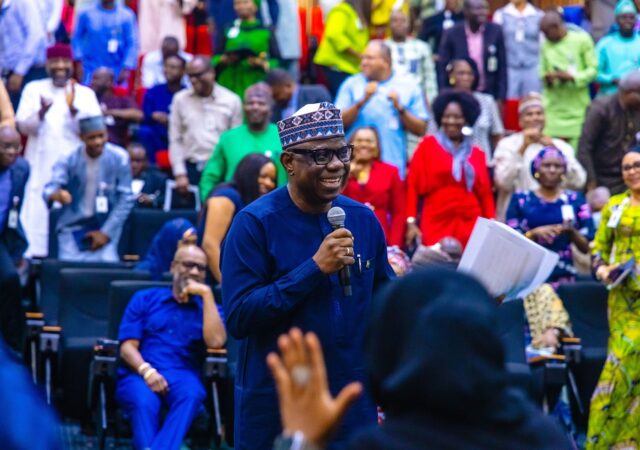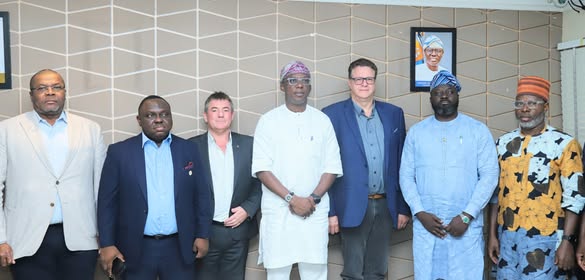“It’s always been my dream and I am overwhelmed to have the opportunity of being part of this exceptional project”.
That was the gushing statement by Raj Hooblal, Head, Environment of the Dangote Refinery, speaking to Engineers under the aegis of the Lagos State Chapter of the Nigerian Institution of Environmental Engineers (NIEE).
This was as the Chapter, yesterday undertook a study tour of the Dangote Refinery, the largest such project in Nigeria and indeed the whole world.
“Indeed, this is an eye opener for us”, says Engr (Mrs) Abiola Kosegbe, Permanent Secretary, Lagos State Local Government Service Commission.
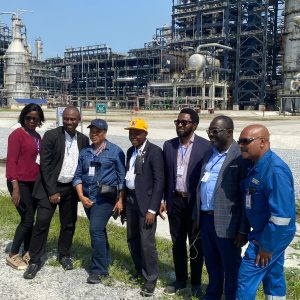
And what an eye opener.
The Refinery is a testament to Man’s ingenuity and vision. And technologically, it’s a behemoth of environmental firsts.
The Dangote Refinery is reportedly the largest single refinery in the world with an installed capacity of 650,000 barrels per day refining capacity.
The complex by design is a zero emissions facility with reputedly the best sulphur recovery systems on earth.
Completely confident in the systems in place, the refinery boasts of the following systems;
a. A 100percent water treatment plant with reuse capability
b. a completely cyclic 33mw captive power plant with the capability of utilizing five fuel sources including; LPG, Diesel, LPFO, Petrol, Kerosene. This power plant has the capacity to power the whole of Lagos State.
c. Complete built to order safety systems
Run on a circular economy paradigm, meaning absolutely no waste and no pollution’, says Mr Hooblal, “We aim to be the best neighbours on earth”.
“And we do this by making sure that we do not impact on the environment, at times actually making the environment better than we met it”
“This is achieved by ensuring that all our systems have been built with control and back ups to our back ups in place and tested regularly, meeting all the health, safety, environment requirements and certifications even before they are due and utilizing the very latest technologies, built to specifications; with continuous emissions monitoring, water levels monitoring, air and noise monitoring”
Even the storage facilities are constructed in such a way that the bases are built as containment platforms in the event of loss of primary and secondary containment.
Indeed, the tour round the facility was overwhelming. From the water piping units, built to withstand over 150psi of water pressure, to the 20 storage tanks capable of holding 120million litres of product each, to the custom built RFCC model Catalytic Crackers; the group of engineers encountered a different level of engagement.
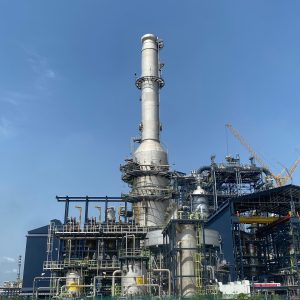
It is a tour that every Environmental Engineer should undertake as this is a world class infrastructure constructed right before our eyes under our watch, says Engr. Yusuf Majolagbe, Chairman of Lagos NIEE.
“This is a tour that has been months in the making. We took a survey and with an expected operational commissioning of the refinery coming up before the end of the year, we felt it was necessary for us to have this study tour and it’s been highly educative.
“We are also expectant that after the plant begins operation, we would have the opportunity to repeat the visit and see firsthand the systems in operation”, says Majolagbe.
“It is also an opportunity to seek increased partnership with Dangote Refinery, because as Environmental Engineers, it is important for us to be part of such developments”.
Complimenting the executives of Lagos NIEE, Engr (Mrs) Abiola Kosegbe, herself the immediate past Lagos State Chapter chairman of NIEE, stated that it was amazing the work that has been put in place.
According to her, “For the students with us, it’s an experience and opportunity to understand on ground, what is being taught in the lecture room”.
“They are able to grasp the chemical compositions, the placements of structures, the environmental systems put in place, so I think it was a fantastic opportunity”
One concern however is the level of local content participation.
While ably assisted by a duo of female environmentalists, there still remains room for more inclusion.
Says Engr. Kosegbe, “There’s nothing wrong in bringing in knowledge experts, in so far as there’s Knowledge transfer and optimum training provided at the same time”.
As a chapter of the Nigerian Society of Engineers, the NIEE is particular about local content and we look forward to an increase of local practitioners in future”



